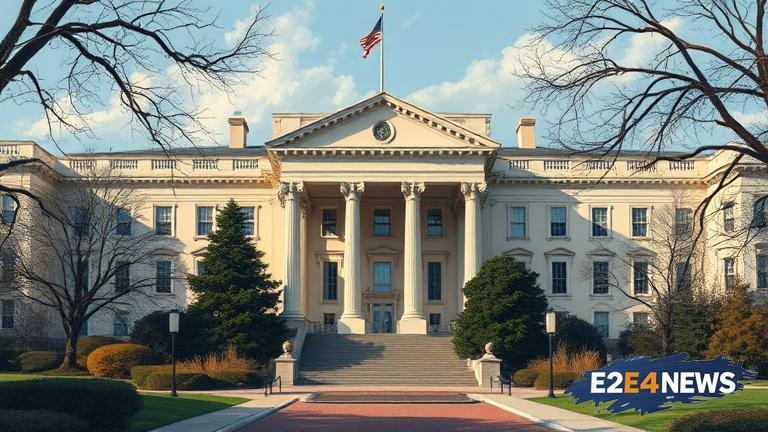The White House has announced plans to seek fines in potential deals with elite universities, including Harvard, as part of a broader effort to address concerns over foreign influence and intellectual property theft. The move is seen as a significant escalation of the administration’s crackdown on universities that have received funding from foreign governments, particularly China. The White House is using Columbia University as a model for its approach, after the university agreed to pay a $700,000 fine to settle allegations that it had failed to disclose foreign funding. The administration is seeking to impose similar fines on other universities that have received foreign funding, including Harvard, which has been accused of failing to disclose millions of dollars in foreign funding. The move has sparked concerns among university administrators, who argue that the fines could have a chilling effect on academic research and collaboration. The White House has argued that the fines are necessary to protect national security and prevent the theft of intellectual property. The administration has also announced plans to increase transparency and disclosure requirements for universities that receive foreign funding. The move is part of a broader effort to address concerns over foreign influence and intellectual property theft, which have been fueled by reports of Chinese espionage and hacking. The White House has also announced plans to establish a new task force to investigate foreign funding of universities and to develop new guidelines for universities that receive foreign funding. The task force will be led by the Department of Education and will include representatives from the Department of Justice, the Department of State, and the Department of Defense. The administration has also announced plans to increase funding for universities that conduct research in areas deemed critical to national security, such as artificial intelligence and cybersecurity. The move is seen as an effort to incentivize universities to prioritize research in areas that are deemed critical to national security. The White House has also announced plans to establish a new database to track foreign funding of universities, which will be made publicly available. The database will include information on the amount and source of foreign funding, as well as the purpose of the funding. The administration has argued that the database will help to increase transparency and accountability, and will allow the public to see which universities are receiving foreign funding. The move has sparked concerns among some university administrators, who argue that the database could be used to target universities that receive foreign funding. The White House has also announced plans to increase scrutiny of foreign students and scholars, who will be subject to increased vetting and monitoring. The move is seen as an effort to prevent the theft of intellectual property and to protect national security. The administration has argued that the increased scrutiny is necessary to prevent foreign governments from using students and scholars to steal sensitive information. The White House has also announced plans to establish a new office to oversee the administration’s efforts to address foreign influence and intellectual property theft. The office will be led by a senior official who will be responsible for coordinating the administration’s efforts and for developing new policies and guidelines. The move is seen as an effort to increase coordination and cooperation among federal agencies, and to ensure that the administration’s efforts are effective and efficient. The White House has argued that the office will help to streamline the administration’s efforts and to ensure that universities are held accountable for their actions. The administration has also announced plans to increase funding for programs that promote academic integrity and transparency, such as the Department of Education’s Office of Inspector General. The move is seen as an effort to incentivize universities to prioritize academic integrity and transparency, and to prevent the theft of intellectual property. The White House has argued that the increased funding will help to ensure that universities are held accountable for their actions, and that the public can have confidence in the integrity of academic research.
